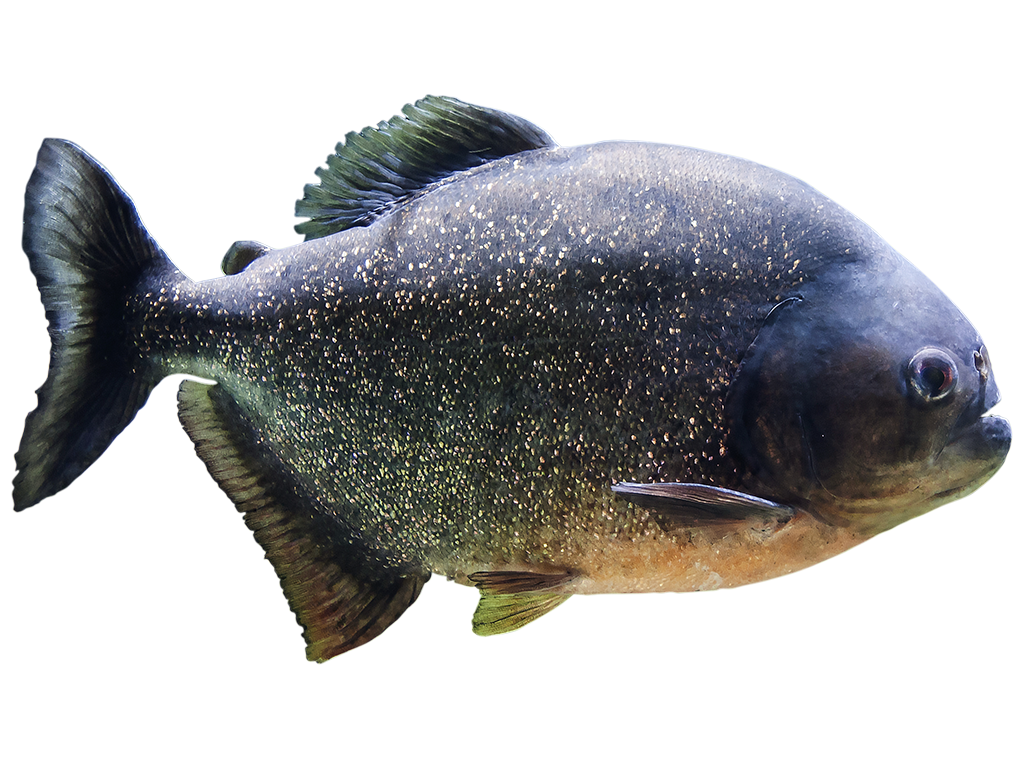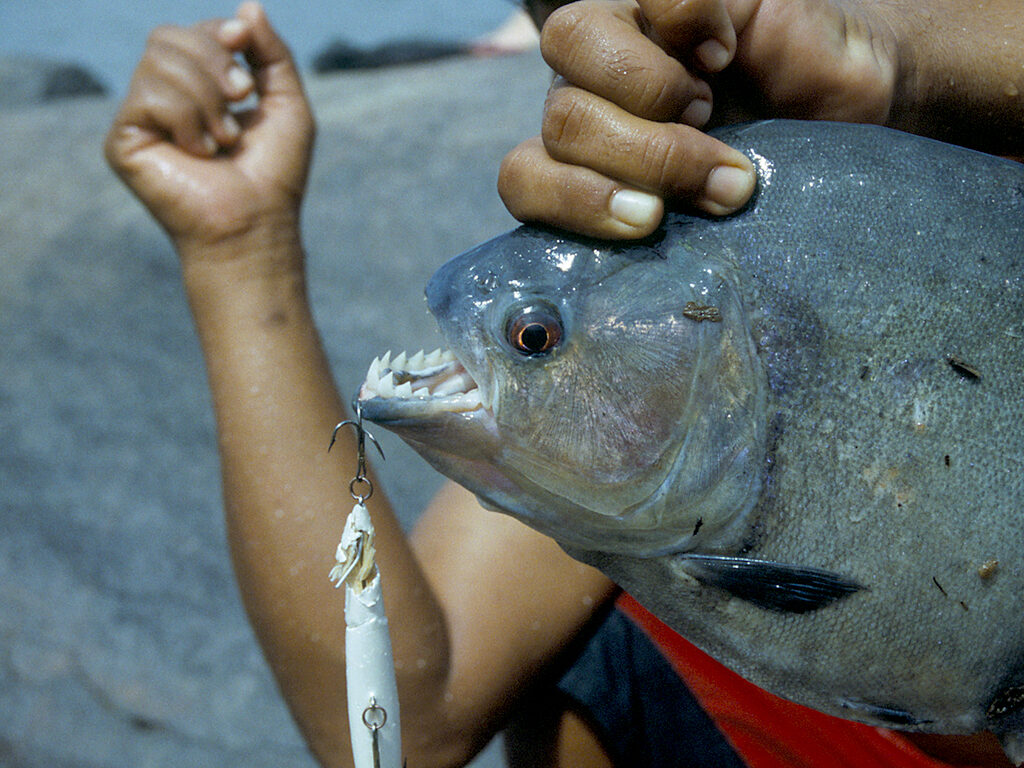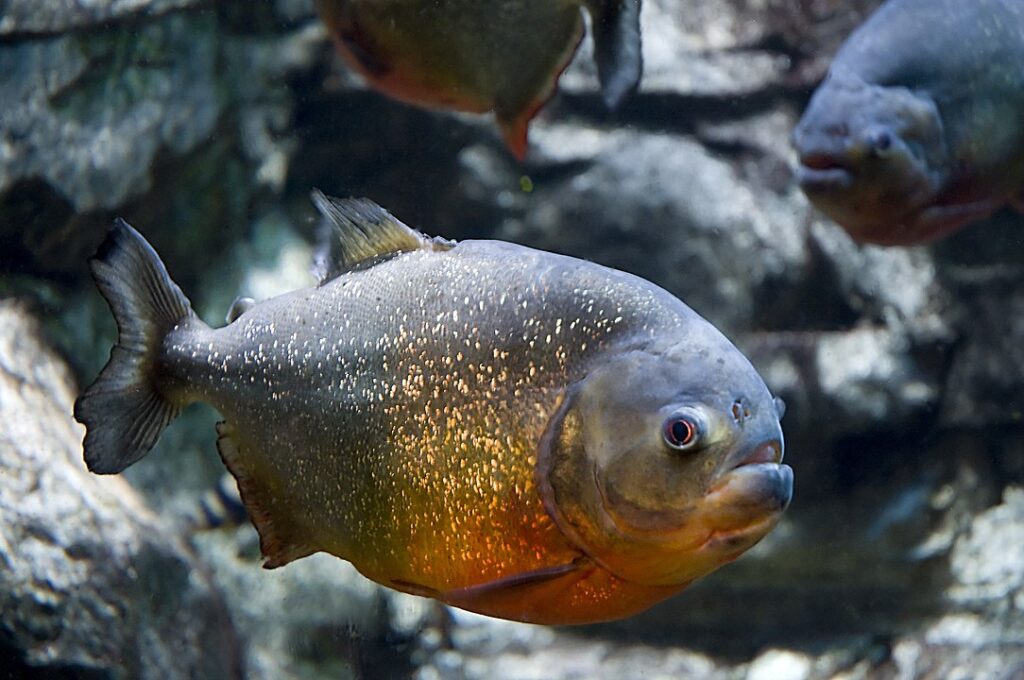Red-bellied Piranha
Pygocentrus nattereri

Misunderstood coward
The red-bellied piranha is perhaps one of the most misunderstood fish on the planet. The general opinion about the red-bellied piranha is that it is a very bloodthirsty fish that hunts in large groups and do not hesitate to attack huge prey and rip them apart. The truth is that the red-bellied piranha is a very cautious fish that mainly eats cadavers, but also insects, plants, and the occasional nibble of each other. It is not unusual to see red-bellied piranhas that have lost pieces of their fins or scales in a fight. But the red-bellied piranha has an amazing ability to heal.

Photo: Magnus-Pettersson-Malmö-Museer
Communicates through sounds
Occasionally, groups of piranhas do attack and kill large prey, including humans. But this only happens under very special circumstances, when the piranhas form a large group, are stressed, and have not eaten in a very long time. The reason why the piranhas live in large schools is not that they hunt together, but because it is a great way to protect themselves from larger predators like dolphins, caimans, or predatory fish.
Red-bellied piranhas communicate a lot within the group. They have muscles that can produce sounds. They also have a very keen sense of smell, allowing them to locate sick and dying prey to eat.

Photo: Gregory-Moine-CC-BY
Mating dance
During the wet season, when water levels rise, it is time for the red-bellied piranha to spawn. The male builds a kind of nest among seaweed. The male and female then dance together in a kind of mating dance before the eggs hatch. The eggs are carefully guarded by both parents, and they hatch after 2–3 days. When the fry hatch, they hide among the water plants and are guarded by the parents until they are large enough to make it on their own.
Distribution worldwide

Tropical parts in
South America
White marking = Distribution
Threat based on the Red List

Trade regulations
CITES: Not listed.